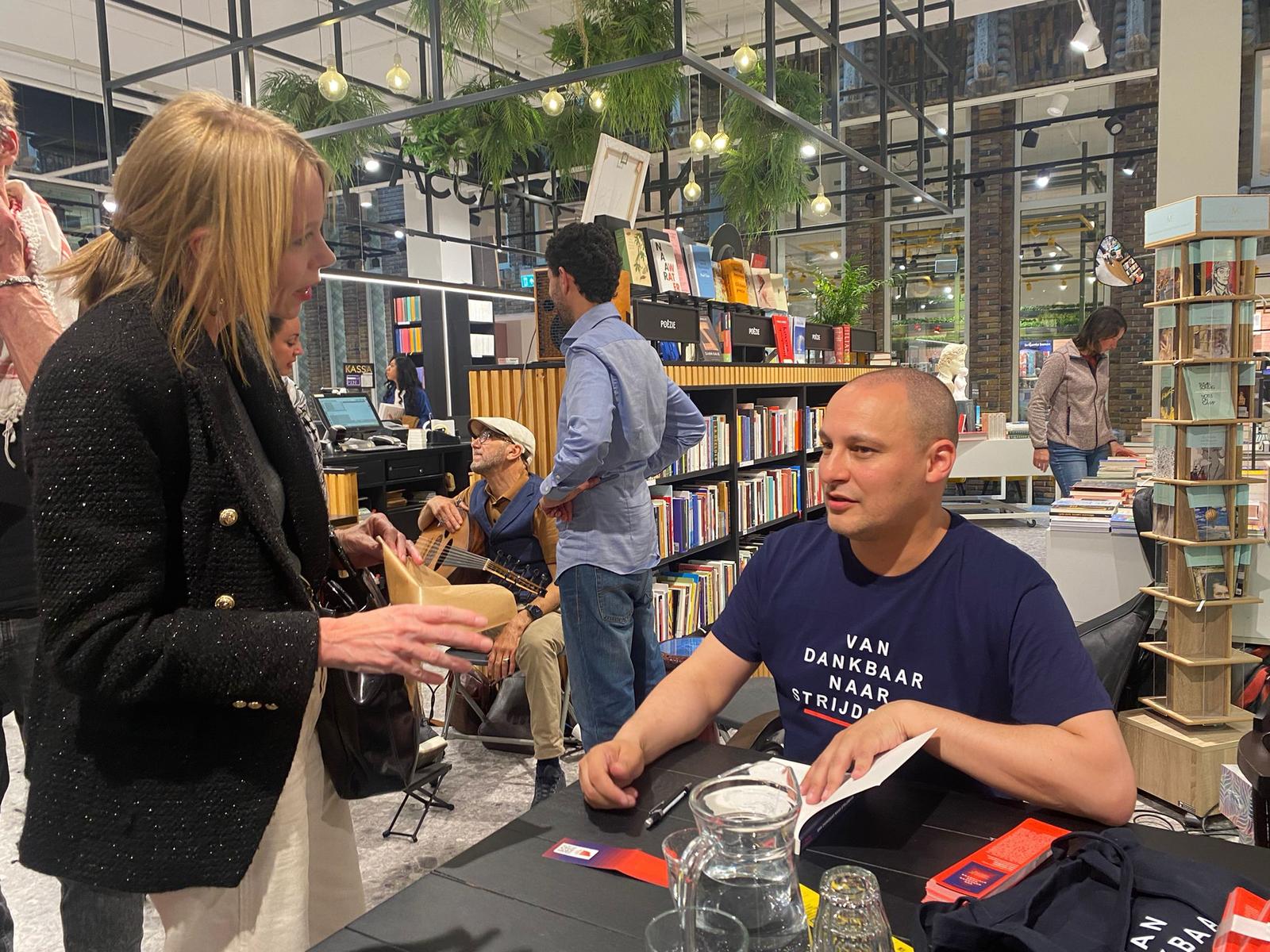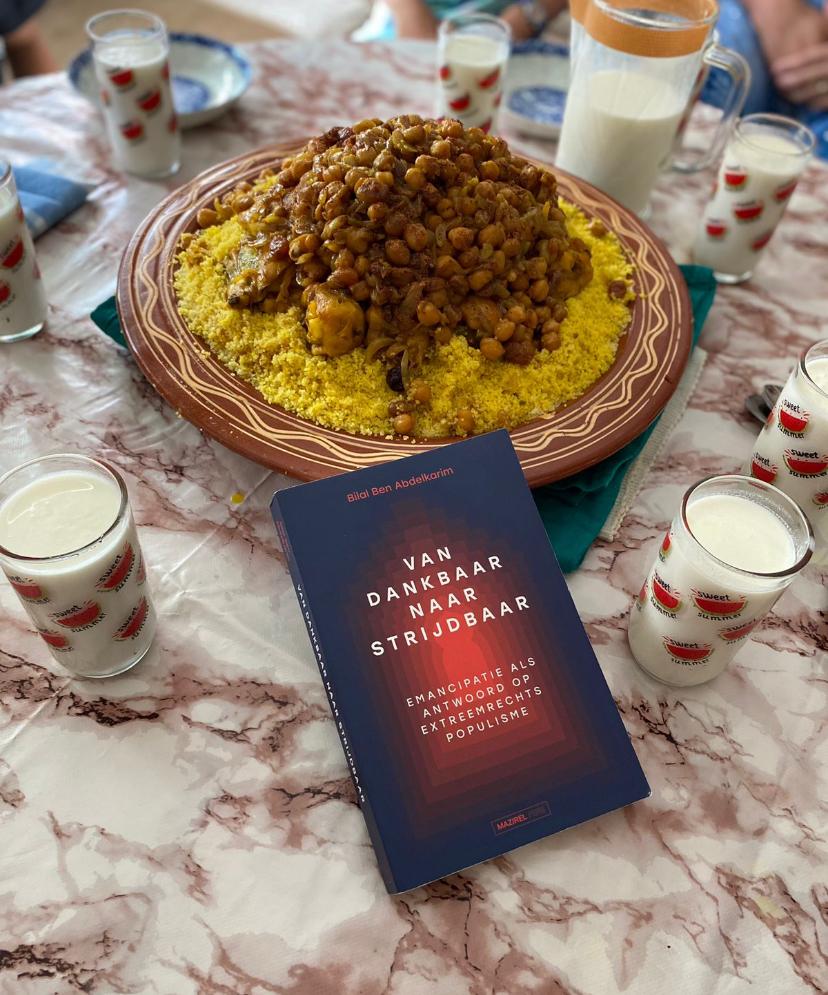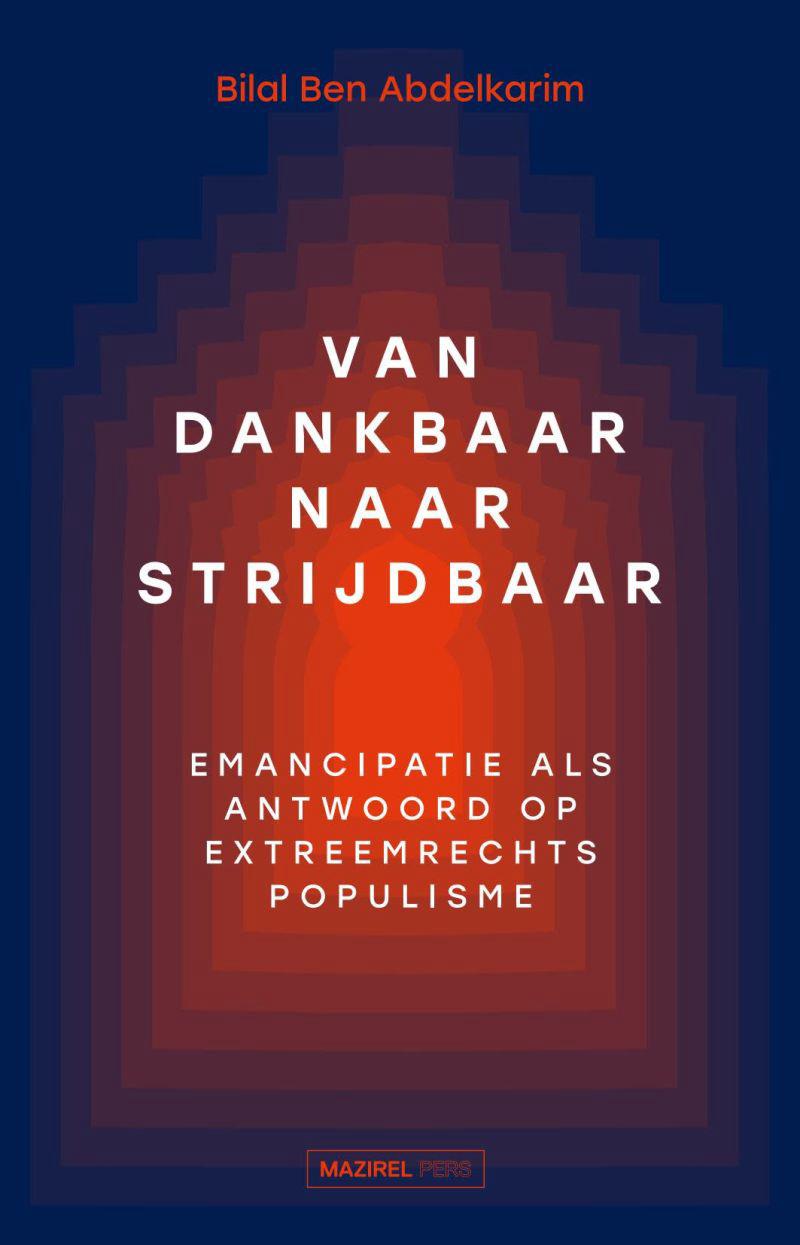Bilal Ben Abdelkarim recounts his parents' migratory experience and their fortitude in the Netherlands, highlighting the significance of sharing the narratives of the first wave of Moroccan immigrants. His book, Van dankbaar naar strijdbaar highlights the difficulties and possibilities faced by Dutch Moroccans, promoting self-reliance, active participation in politics, and cultural liberation.
Bilal Ben Abdelkarim bears the tale of his parents, a narrative marked by perseverance and relocation, much like numerous Moroccans raised in the Netherlands whose elders departed from their home country seeking improved prospects.
Born in Tetouan, located in northern Morocco, his father embarked on a journey to Gibraltar at the age of 18 alongside an elder sibling. This marked the start of his migratory path, which included work experiences in Stockholm, Sweden, and Torremolinos, Spain, prior to establishing residence in the Netherlands. Throughout these efforts to find stability in Europe and gainful employment, his father got married.
"It’s the 1970s, and during that era, numerous individuals from that generation traveled to countries like Holland, Belgium, and France. Initially, my father visited Spain; however, Spain wasn’t significantly more prosperous than Morocco financially," explained Bilal, who currently works as a citizenship instructor at an Amsterdam vocational school. He has previously served as a social worker and most recently took up writing.

In the Netherlands, Bilal’s father was employed as a cook. During his time in Sweden, he acquired cooking skills at an Italian eatery—a pizzeria—Bilal recounted to Yabildi. In Utrecht, the father spent his professional life working as a chef in various Italian restaurants before finally opening one under his ownership. This tale of perseverance and dedication forms a central part of Bilal’s debut publication, "Van dankbaar naar strijdbaar" (From Thankful to Determined). The book aims to narrate the experiences of early immigrants in the Netherlands, reflecting stories similar to those of his parents.
"For me, it’s crucial to demonstrate that prior to their arrival in the Netherlands, the first generation—who were often simplified to just statistics and referred to as gastarbeiders (guest workers)—were real individuals with dreams for the future, aspirations, and a past," he expressed excitedly.
A key aspect of Bilal’s family migration narrative revolves around his mother. Also from Tetouan, she dedicated herself entirely to ensuring her children remained linked to their heritage, homeland, and cultural background—particularly emphasizing Tetouan’s rich history and folk traditions. "She would often share tales related to Islam, Moroccan customs, and the nation's past," as Bilal remembers. His mother, who grew up in the ancient medina section of Tetouan, excelled academically under the guidance of her grandparents. Although she did not attend university, she possessed remarkable intelligence and extensive knowledge which she imparted to her children. Upon moving to the Netherlands, she swiftly mastered the local language and formed numerous friendships.
A Pivotal Moment: Reflecting on Identity
Bilal enjoyed a rather joyful upbringing thanks to his affectionate parents. "Admittedly, many faced negative experiences such as racism and prejudice," he stated. "However, since I grew up in a neighborhood where nearly everybody was Moroccan, even though I might have encountered these issues at school, they were not something I consciously noticed." Bilal shared this insight.
However, there was a pivotal moment —a juncture where Bilal started to question why he was viewed differently and why certain individuals perceived Moroccans as outsiders. This significant shift occurred in 2001, following the terrorist attacks on September 11 in New York City.
"I had reached the age of 17 when all these issues began to unfold," he noted. Prior to that time, conversations about such topics occurred within my school community involving various individuals. Politicians and certain media outlets were also vocalizing negative opinions regarding Moroccans, Muslims, suggesting they did not belong to Western culture and portraying them as outsiders." For Bilal personally, his awareness heightened significantly following the events of September 11th. It was then that he began actively engaging with current affairs through television news broadcasts and newspaper articles. "This event marked a significant shift; every individual who identified as Muslim suddenly found themselves under scrutiny,” he said. “Even educators at our institution would pose inquiries—more out of preconceived notions than genuine curiosity.”

Bilal felt an urge to provide responses to all the inquiries directed at him and to stand up for himself, his culture, and his faith. "Since I wasn't content with my own explanations, I began studying the Quran as well as expanding my knowledge about politics," he remembered.
Following his graduation from high school, Bilal’s upbringing shaped his professional path. He opted for social work, concentrating specifically on adolescents between the ages of 16 and 25. His primary focus was assisting youth living in disadvantaged areas who faced challenges such as economic hardship and legal troubles. "My aim is to support these individuals in achieving success—whether through education or employment," he stated. Five years into his career as a social worker, he made the decision to pursue teaching studies.
A Call for Emancipation
Bilal has been teaching for ten years, focusing on instructing young individuals aspiring to be social workers. During a conversation with his students, the concept of authoring a book emerged. "Since many of my students share similar origins, it was concerning to me that they were unaware of their own heritage," he explained. One day, he queried them, "'Can anyone inform me about Dutch Moroccans?' Their response included only Hakim Ziyech and Mocro Maffia," he added humorously.

This inspired Bilal to consider the duty of Dutch Moroccans in narrating their own experiences. "Shouldn’t we, as Dutch Moroccans, shoulder the task of sharing our narrative? Otherwise, this European Moroccan journey might fade into obscurity," he mused. Convinced of his role, Bilal initiated his book recounting his parents’ tale before delving into wider subjects such as politics. He stated, “The book begins from my perspective to help readers connect with me; however, the personal aspect intertwines with the political one. As I progress, the content shifts towards a stronger emphasis on politics.”
The book tackles both the adverse effects and the beneficial ones, highlighting liberation—a word Bilal frequently uses. "This isn't merely a gripe session; rather, I emphasize that for true freedom, one needs to be independent," he explained. "Engagement and seizing chances are crucial."
This is a wonderful nation, and I wish for it to remain fantastic, democratic, and committed to upholding the rule of law," Bilal stated. "That's precisely why I believe we must get organized and actively participate in politics so our voices can be heard.